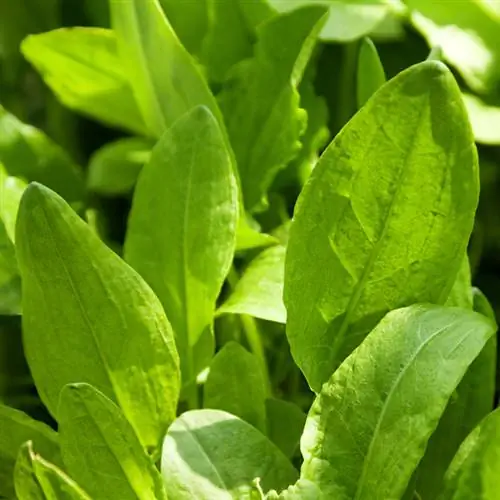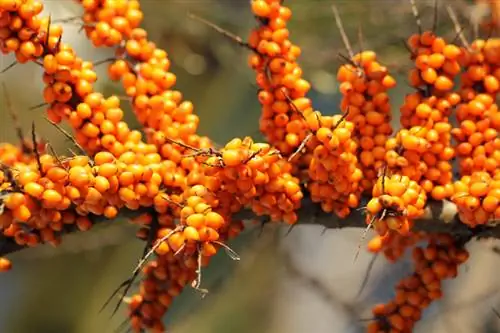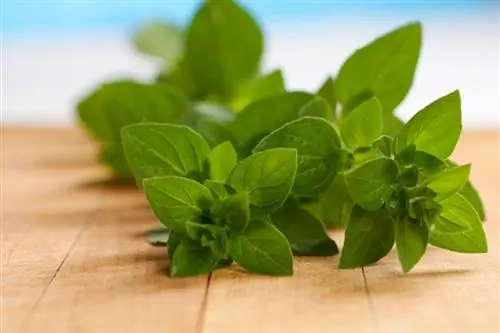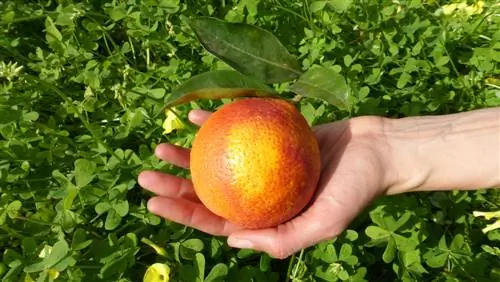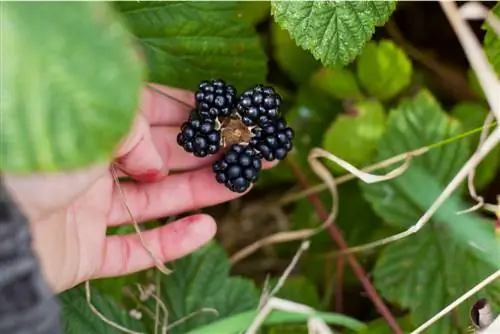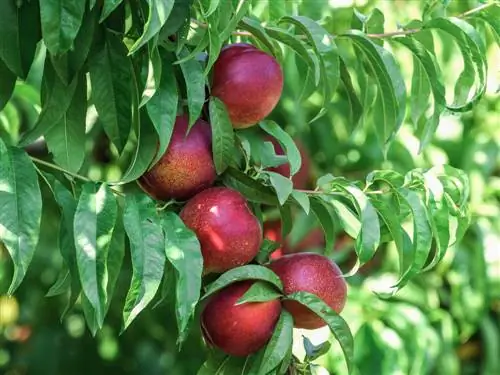- Author admin leonars@hobbygardeners.com.
- Public 2023-12-16 16:46.
- Last modified 2025-01-23 11:20.
The sorrel (Rumex acetosa) is a herbaceous plant that grows particularly often in forage meadows fertilized with manure. In principle, sorrel is non-toxic and therefore suitable for consumption, but there are still certain restrictions when harvesting it.
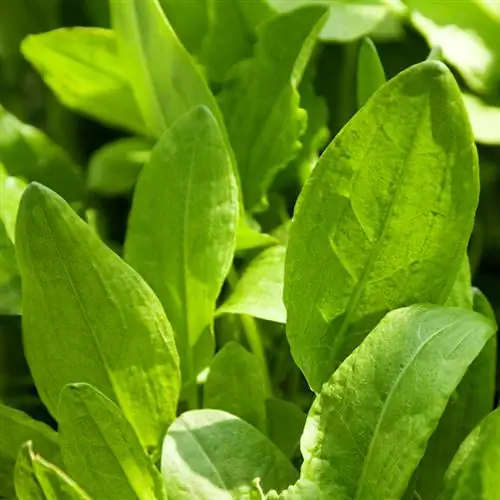
When is sorrel season?
The sorrel season begins in spring and lasts until St. John's Day on June 24th. During this time, the fresh green leaves with low oxalic acid content can be harvested and used in various dishes such as green sauce, soup, puree or salad.
Sorrel is in season in spring
In addition to many he althy ingredients, the leaves and flowers also contain oxalic acid, which can cause stomach upset if large quantities are consumed frequently. Since the concentration of oxalic acid in the plants increases significantly after flowering, you should only harvest the sorrel beforehand if possible. However, sorrel can be safely used in these recipes, for example, until the deadline shared with rhubarb on June 24th:
- Frankfurt Green Sauce
- Sorrel soup
- Sorrel puree
- Sorrel Salad
Assessing the color of the leaves
The color can also serve as an indicator of the oxalic acid content in the sorrel plants. The redder the leaves and flowers are, the more oxalic acid they usually contain. So preferably harvest young leaves with a fresh green color.
Tips & Tricks
When dried, the sorrel does not retain its aroma very well. It is therefore better to freeze it with water or make sorrel oil.

